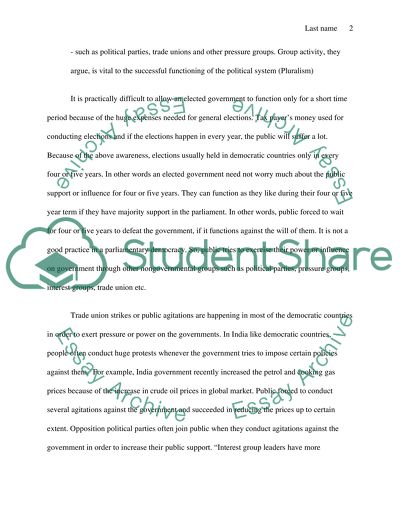Cite this document
(The Main Ideas of a Pluralist Model in a Political Process Essay Example | Topics and Well Written Essays - 1500 words, n.d.)
The Main Ideas of a Pluralist Model in a Political Process Essay Example | Topics and Well Written Essays - 1500 words. https://studentshare.org/politics/1428997-explain-the-main-ideas-of-a-pluralist-model-in-a
The Main Ideas of a Pluralist Model in a Political Process Essay Example | Topics and Well Written Essays - 1500 words. https://studentshare.org/politics/1428997-explain-the-main-ideas-of-a-pluralist-model-in-a
(The Main Ideas of a Pluralist Model in a Political Process Essay Example | Topics and Well Written Essays - 1500 Words)
The Main Ideas of a Pluralist Model in a Political Process Essay Example | Topics and Well Written Essays - 1500 Words. https://studentshare.org/politics/1428997-explain-the-main-ideas-of-a-pluralist-model-in-a.
The Main Ideas of a Pluralist Model in a Political Process Essay Example | Topics and Well Written Essays - 1500 Words. https://studentshare.org/politics/1428997-explain-the-main-ideas-of-a-pluralist-model-in-a.
“The Main Ideas of a Pluralist Model in a Political Process Essay Example | Topics and Well Written Essays - 1500 Words”. https://studentshare.org/politics/1428997-explain-the-main-ideas-of-a-pluralist-model-in-a.


